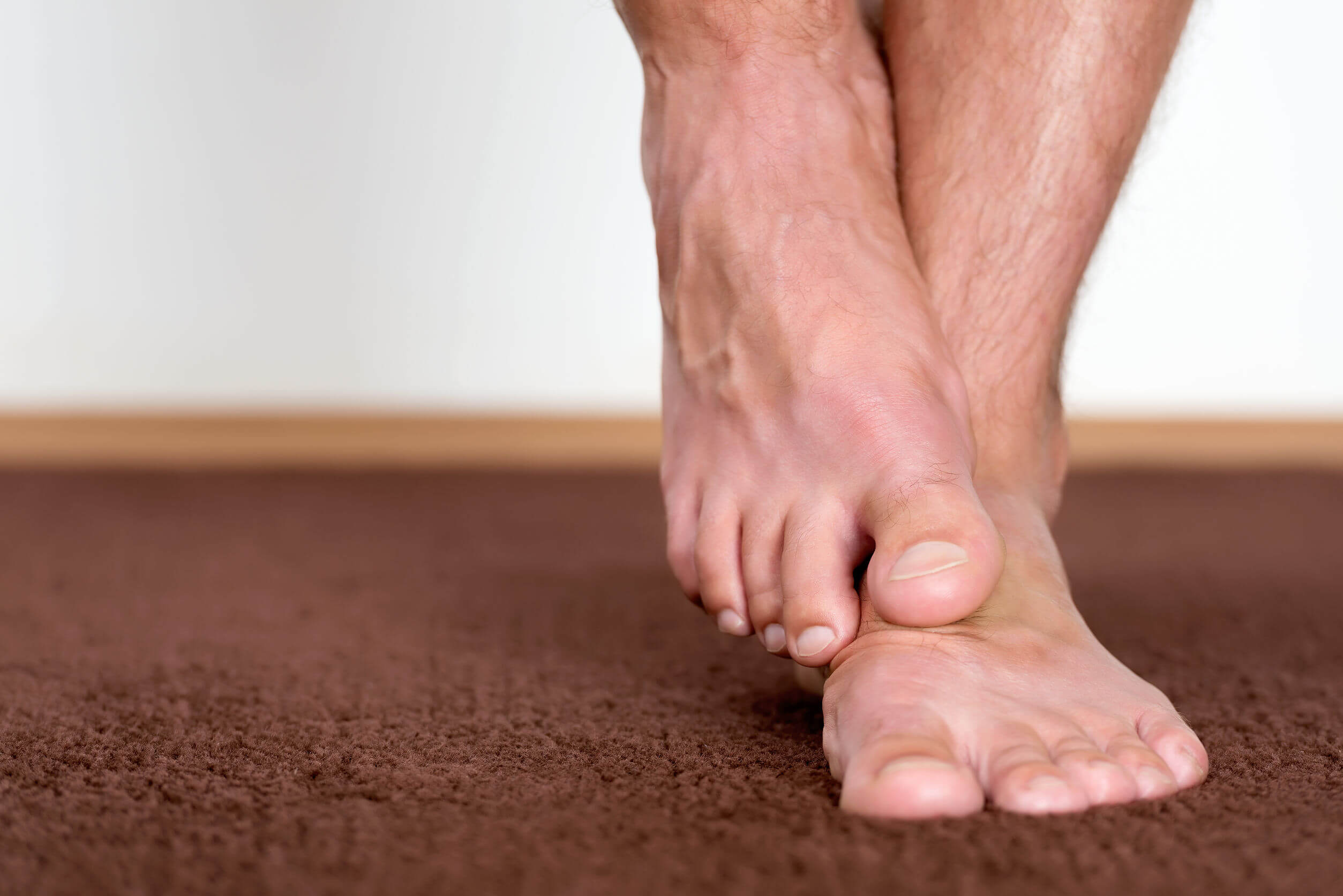How to Take Care of Your Skin in Cold Weather

With the winter season, in addition to snowflakes, cozy coats, and comforting hot drinks, come eczema flare-ups. Low temperatures and freezing, dry winds are the triggers for your dermis to become tight, brittle, flaky, and itchy, so learning to take care of your skin from the cold is essential.
Eczema can be painful, the area of the face and hands being the most affected, and so your skin will need special care. Gloves, humidifiers, moisturizers, and other measures are small tools that will help you maintain the health of your skin in the wintertime. Discover 12 keys to take care of your skin when it’s cold.
12 tips to take care of your skin when it’s cold
Incorporating some practices into your beauty routine for wintertime will allow you to keep your skin hydrated and elastic. Prevention is vital in order to maintain the freshness of the largest organ in your body. We’ll explain how to achieve it.
1. Avoid sudden changes in temperature
The sudden changes in temperature that you’re subjected to during the winter, such as going from a dry and warm place to the cold or damp outside, have a negative impact on your skin in the form of dryness and cracking.
Therefore, the use of gloves, coats, hats, and scarves is key to avoid eczema outbreaks, or failing that, to reduce them. These help your body temperature not to drop significantly when exposed to the cold, and that the transition from one environment to another isn’t so traumatic for your skin.
As tempting as it may seem (and we’ve all done it) don’t wash your hands with warm water if they’re cold. Just wait for your hands to warm up a bit and then wash them.
2. Drink water frequently
Hydration using natural water is a constant recommendation in all skincare routines. In the same way, it’s also key in order to take care of the skin in cold weather.
We usually forget this habit at this time of the year, but it’s imperative to know that the low humidity of the climate, can irritate your eyes and remove the natural moisture from your skin. To remedy this situation, remember to carry a reusable water thermos with you and don’t deprive yourself of the enjoyment of teas, infusions, and other winter drinks.

3. Use mild, fragrance-free cleaning products
As your skin is vulnerable to cold weather, common cleaning products like hand soaps, detergents, and bleaches can irritate it even more. The chemical substances in them are usually abrasive on sensitive skin, and so it’s recommended to replace them with natural or softer products.
4. Be careful when cleaning your face
Since your face is one of the areas that’s most exposed to winter weather, it may be more sensitive than usual. That being the case, try to wash your face with a hypoallergenic cleansing gel during this season.
These products are usually mild and fragrance-free, and in this way, you won’t run the risk of your regular soap removing the natural substances that protect and moisturize your skin.
5. Get some vitamin D to take care of your skin in cold weather
Your skin needs vitamin D to stay healthy, and this nutrient is produced by the body when exposed to sunlight. While it’s true that, during the winter, the sun doesn’t come out very often, this doesn’t mean that you shouldn’t use sunscreen to prevent sunburn, which will also make eczema worse.
In case you don’t have the opportunity to sunbathe, try taking vitamin D supplements. According to a study published in Nutrition, these are able to alleviate the symptoms of dermatitis and eczema.
6. Avoid bathing excessively with lukewarm water
Due to sudden changes in temperature, winter can cause the skin to become dehydrated and flake more than during the summer. For the same reason, and as tempting as it may be, don’t take long hot baths while snow is falling outside.
In addition to dehydrating, hot water tends to eliminate the natural lipids that protect your body, and which are necessary to retain moisture in your skin. Keep in mind that when you finish taking a shower with hot water, your skin will cool down quickly and this, in wintertime, is also a sudden change in temperature.
7. Use a humidifier to take care of your skin in cold weather
A humidifier is a useful device to increase the air’s humidity, and, according to Mayo Clinic, this is beneficial for your skin and mucous membranes. In this way, you’ll reduce the risk of your skin cracking due to the dry winter air, and it’ll serve as a gateway for the appearance of infections in your body.
8. Keep your skin dry
Be especially careful when exposed to the open air, as clothes and shoes tend to get wet from the snow. This type of environment, humid and cold, is ideal for incubating mycosis on the skin and, in case of eczema, prolonged contact with wet cloth worsens the condition.
Make sure you do a quick change out of your wet gear, not overlooking gloves, socks, hats, and scarves. Try to bring a change of clothes with you.

9. Wear layered clothing
Part of winter skincare involves dressing appropriately. Wearing layered clothes, in addition to protecting yourself from the freezing wind, becomes very useful. In this way, you’ll be controlling the cold and humidity, and, at the same time, you’ll conserve your body heat.
The use of three layers of clothing is recommended. The first layer tight to the body, the second a little looser in order to keep you warm, and the third (usually a thick winter coat) to serve as a barrier against rain, wind, and snow.
Following this recommendation will also allow your skin to breathe freely when in hot places. The choice of materials is very important; opt for natural and breathable fabrics for the first two layers of clothing. Keep in mind that both cold weather and body sweat irritate the skin and make eczema worse.
10. Eat foods that don’t provoke eczema
Omega-3-rich foods like avocado, walnuts, sardines, and tuna, for example, help keep your skin hydrated. Among their benefits are that they strengthen skin cells, calm the skin when there’s irritation, and reduce the risk of cracking.
In addition, there’s scientific evidence that shows that some foods with a tendency to create allergies, such as milk, shellfish, or eggs, actually make eczema worse.
11. Moisturize your skin frequently
A coconut oil-based balm, for example, is something that you should always carry with you during the winter; it’ll allow you to constantly moisturize this area. Also, use creams and oil-based products with moisturizing properties.
The face, hands, and feet should be moisturized every time you wash, these exposed areas tend to be more affected during this season of the year. Don’t forget to adjust your routine and facial products to the season.
12. Use sunscreen
During the winter, even though we often get gray days, you shouldn’t skip this step. It’s proven that, even though the sun’s rays are milder at this time of the year, they can still cause damage to the skin.
For this reason, consider protecting your neck, hands, ears, lips, and the area below the chin. Also renew the protector every 3 hours, especially if you sweat a lot.
What should you remember in order to take care of your skin when it’s cold?
- Prevent your skin from getting cold. In order to do this, bundle up well when you leave a hot area and head outside. Protect your hands, neck, and head with gloves, scarves, and hats.
- The sudden change in temperature increases the chances of skin irritation.
- Try to keep your body moist by drinking water, moisturizing your dermis with creams every time you bathe or wet your hands, and using a humidifier in your room.
- Protect yourself from the harsh winter weather. In order to do this, use layered clothing, taking into account the recommendations given.
- Incorporate foods that are rich in omega-3 into your winter diet.
- If you develop outbreaks of inflammation, better known as eczema, then go and see a dermatologist.
- Modify some of your habits and regular skin products, in order to ensure that you’re really looking after your skin in cold weather.
With the winter season, in addition to snowflakes, cozy coats, and comforting hot drinks, come eczema flare-ups. Low temperatures and freezing, dry winds are the triggers for your dermis to become tight, brittle, flaky, and itchy, so learning to take care of your skin from the cold is essential.
Eczema can be painful, the area of the face and hands being the most affected, and so your skin will need special care. Gloves, humidifiers, moisturizers, and other measures are small tools that will help you maintain the health of your skin in the wintertime. Discover 12 keys to take care of your skin when it’s cold.
12 tips to take care of your skin when it’s cold
Incorporating some practices into your beauty routine for wintertime will allow you to keep your skin hydrated and elastic. Prevention is vital in order to maintain the freshness of the largest organ in your body. We’ll explain how to achieve it.
1. Avoid sudden changes in temperature
The sudden changes in temperature that you’re subjected to during the winter, such as going from a dry and warm place to the cold or damp outside, have a negative impact on your skin in the form of dryness and cracking.
Therefore, the use of gloves, coats, hats, and scarves is key to avoid eczema outbreaks, or failing that, to reduce them. These help your body temperature not to drop significantly when exposed to the cold, and that the transition from one environment to another isn’t so traumatic for your skin.
As tempting as it may seem (and we’ve all done it) don’t wash your hands with warm water if they’re cold. Just wait for your hands to warm up a bit and then wash them.
2. Drink water frequently
Hydration using natural water is a constant recommendation in all skincare routines. In the same way, it’s also key in order to take care of the skin in cold weather.
We usually forget this habit at this time of the year, but it’s imperative to know that the low humidity of the climate, can irritate your eyes and remove the natural moisture from your skin. To remedy this situation, remember to carry a reusable water thermos with you and don’t deprive yourself of the enjoyment of teas, infusions, and other winter drinks.

3. Use mild, fragrance-free cleaning products
As your skin is vulnerable to cold weather, common cleaning products like hand soaps, detergents, and bleaches can irritate it even more. The chemical substances in them are usually abrasive on sensitive skin, and so it’s recommended to replace them with natural or softer products.
4. Be careful when cleaning your face
Since your face is one of the areas that’s most exposed to winter weather, it may be more sensitive than usual. That being the case, try to wash your face with a hypoallergenic cleansing gel during this season.
These products are usually mild and fragrance-free, and in this way, you won’t run the risk of your regular soap removing the natural substances that protect and moisturize your skin.
5. Get some vitamin D to take care of your skin in cold weather
Your skin needs vitamin D to stay healthy, and this nutrient is produced by the body when exposed to sunlight. While it’s true that, during the winter, the sun doesn’t come out very often, this doesn’t mean that you shouldn’t use sunscreen to prevent sunburn, which will also make eczema worse.
In case you don’t have the opportunity to sunbathe, try taking vitamin D supplements. According to a study published in Nutrition, these are able to alleviate the symptoms of dermatitis and eczema.
6. Avoid bathing excessively with lukewarm water
Due to sudden changes in temperature, winter can cause the skin to become dehydrated and flake more than during the summer. For the same reason, and as tempting as it may be, don’t take long hot baths while snow is falling outside.
In addition to dehydrating, hot water tends to eliminate the natural lipids that protect your body, and which are necessary to retain moisture in your skin. Keep in mind that when you finish taking a shower with hot water, your skin will cool down quickly and this, in wintertime, is also a sudden change in temperature.
7. Use a humidifier to take care of your skin in cold weather
A humidifier is a useful device to increase the air’s humidity, and, according to Mayo Clinic, this is beneficial for your skin and mucous membranes. In this way, you’ll reduce the risk of your skin cracking due to the dry winter air, and it’ll serve as a gateway for the appearance of infections in your body.
8. Keep your skin dry
Be especially careful when exposed to the open air, as clothes and shoes tend to get wet from the snow. This type of environment, humid and cold, is ideal for incubating mycosis on the skin and, in case of eczema, prolonged contact with wet cloth worsens the condition.
Make sure you do a quick change out of your wet gear, not overlooking gloves, socks, hats, and scarves. Try to bring a change of clothes with you.

9. Wear layered clothing
Part of winter skincare involves dressing appropriately. Wearing layered clothes, in addition to protecting yourself from the freezing wind, becomes very useful. In this way, you’ll be controlling the cold and humidity, and, at the same time, you’ll conserve your body heat.
The use of three layers of clothing is recommended. The first layer tight to the body, the second a little looser in order to keep you warm, and the third (usually a thick winter coat) to serve as a barrier against rain, wind, and snow.
Following this recommendation will also allow your skin to breathe freely when in hot places. The choice of materials is very important; opt for natural and breathable fabrics for the first two layers of clothing. Keep in mind that both cold weather and body sweat irritate the skin and make eczema worse.
10. Eat foods that don’t provoke eczema
Omega-3-rich foods like avocado, walnuts, sardines, and tuna, for example, help keep your skin hydrated. Among their benefits are that they strengthen skin cells, calm the skin when there’s irritation, and reduce the risk of cracking.
In addition, there’s scientific evidence that shows that some foods with a tendency to create allergies, such as milk, shellfish, or eggs, actually make eczema worse.
11. Moisturize your skin frequently
A coconut oil-based balm, for example, is something that you should always carry with you during the winter; it’ll allow you to constantly moisturize this area. Also, use creams and oil-based products with moisturizing properties.
The face, hands, and feet should be moisturized every time you wash, these exposed areas tend to be more affected during this season of the year. Don’t forget to adjust your routine and facial products to the season.
12. Use sunscreen
During the winter, even though we often get gray days, you shouldn’t skip this step. It’s proven that, even though the sun’s rays are milder at this time of the year, they can still cause damage to the skin.
For this reason, consider protecting your neck, hands, ears, lips, and the area below the chin. Also renew the protector every 3 hours, especially if you sweat a lot.
What should you remember in order to take care of your skin when it’s cold?
- Prevent your skin from getting cold. In order to do this, bundle up well when you leave a hot area and head outside. Protect your hands, neck, and head with gloves, scarves, and hats.
- The sudden change in temperature increases the chances of skin irritation.
- Try to keep your body moist by drinking water, moisturizing your dermis with creams every time you bathe or wet your hands, and using a humidifier in your room.
- Protect yourself from the harsh winter weather. In order to do this, use layered clothing, taking into account the recommendations given.
- Incorporate foods that are rich in omega-3 into your winter diet.
- If you develop outbreaks of inflammation, better known as eczema, then go and see a dermatologist.
- Modify some of your habits and regular skin products, in order to ensure that you’re really looking after your skin in cold weather.
- Mukhopadhyay P. (2011). Cleansers and their role in various dermatological disorders. Indian journal of dermatology, 56(1), 2–6. https://doi.org/10.4103/0019-5154.77542
- Kim, G., & Bae, J. H. (2016). Vitamin D and atopic dermatitis: A systematic review and meta-analysis. Nutrition (Burbank, Los Angeles County, Calif.), 32(9), 913–920. https://doi.org/10.1016/j.nut.2016.01.023
- Mayo Clinic. [Published 2019 May 10]. Humidifiers: Air moisture eases skin, breathing symptoms. Available from: https://www.mayoclinic.org/diseases-conditions/common-cold/in-depth/humidifiers/art-20048021
- Vaidya T, Badri T. Mycosis Fungoides. [Updated 2020 Aug 26]. In: StatPearls [Internet]. Treasure Island (FL): StatPearls Publishing; 2020 Jan-. Available from: https://www.ncbi.nlm.nih.gov/books/NBK519572/
- Katta, R., & Schlichte, M. (2014). Diet and dermatitis: food triggers. The Journal of clinical and aesthetic dermatology, 7(3), 30–36.
- The Skin Cancer Foundation. [Published 2018 Nov 13]. Winter Sun Safety: What to Know About Protecting Yourself During Colder Months. Available from: https://www.skincancer.org/press/2018-winter-sun-safety/
Este texto se ofrece únicamente con propósitos informativos y no reemplaza la consulta con un profesional. Ante dudas, consulta a tu especialista.







